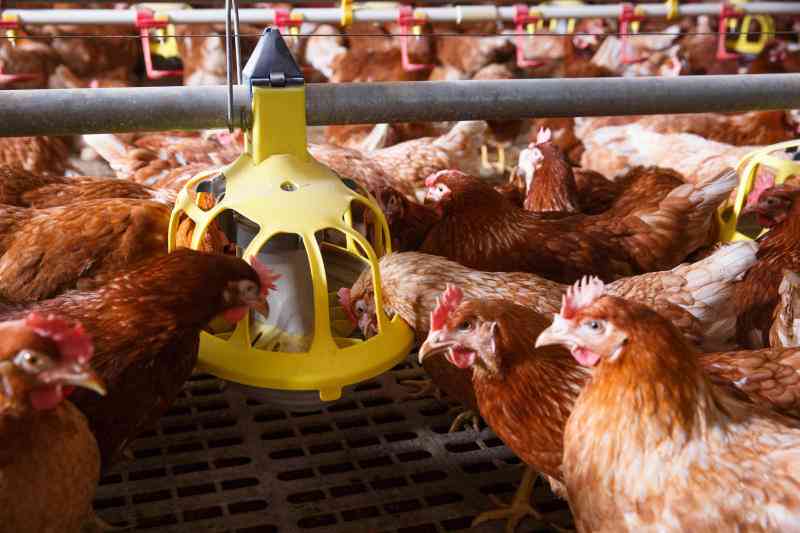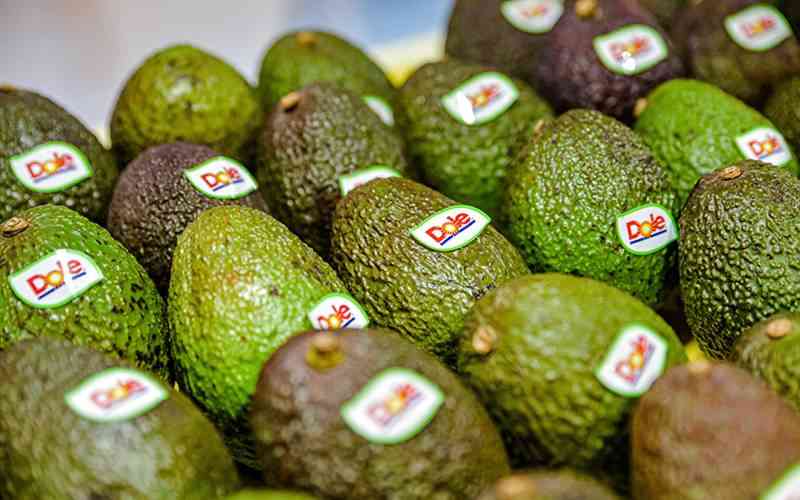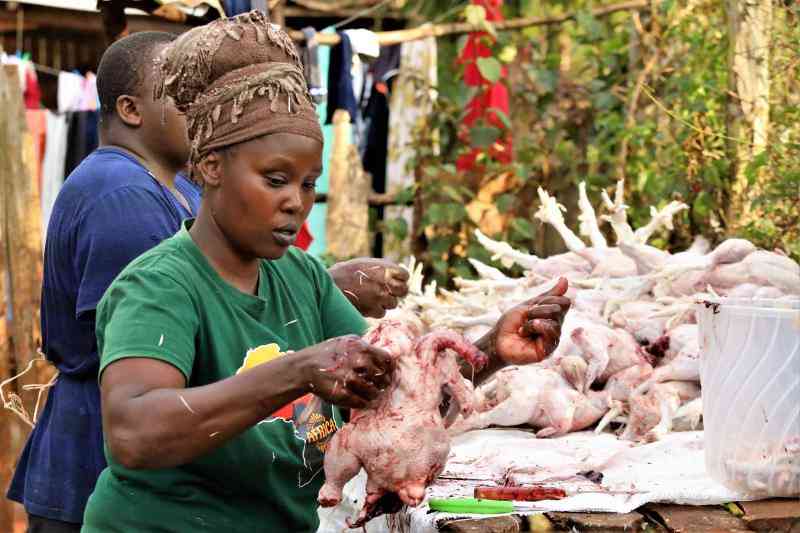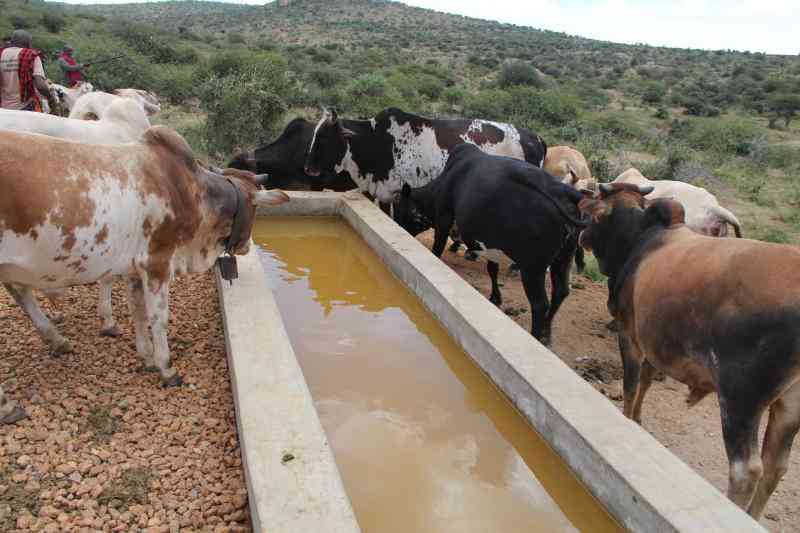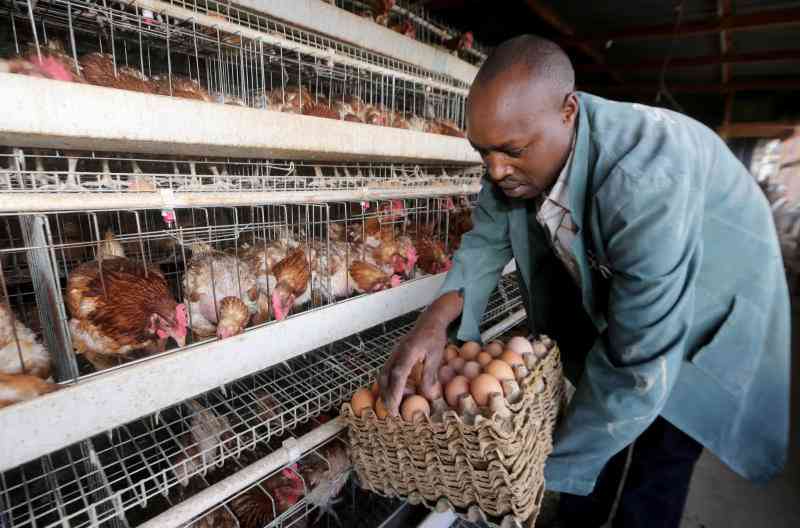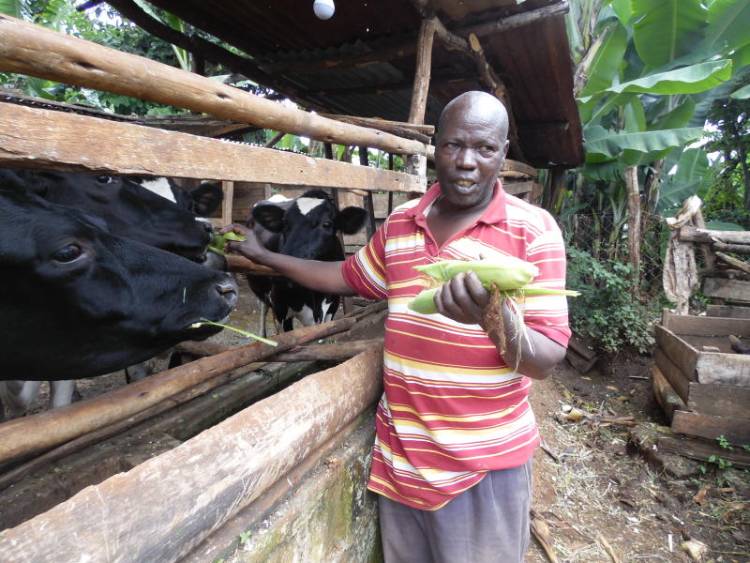
Optimum milk production is every dairy farmer’s dream. In Katheri, about four kilometres from Nkubu town in Meru County, we meet with Edward Nyamu (pictured), a 50-year-old dairy farmer who says the coronavirus pandemic has unexpectedly brought this dream closer to reality.
With most of his family home due to the government's public health guidelines, Nyamu had to find ways to boost his cows' milk production to meet his family's dietary needs.
“Since the first case of coronavirus was reported in the country, the government issued a directive that saw most children and family members stay home. I was a bit distressed at first, and had to devise ways of ensuring that all my family members are adequately fed,” Nyamu says.
“The presence of many family members for an indefinite period of time means that one has to think outside of the box to ensure that they are well nourished."
With many mouths to feed, Nyamu looked into how to up his dairy farming.
“After delivery, I observed that lactating mothers are always given nutritious nourishment to enhance their milk production, and I wondered what would happen to animals if they were equally fed with nutritive nourishment,” Nyamu explains.
He did his research and came to learn that a “protein deficiency may lead to lowered feed intake, lack of muscle development and a prolonged time to reach maturity for calves”.
Armed with this information, he got working on meeting the daily requirements of his lactating cows to enhance their yield.
He feeds his eight animals five to six times a day to avoid them falling into distress. The trainings he has attended in Meru further taught him that frequent feeding ensures a stable pH in the rumen, while feeding one to two times a day makes the pH vary. A stable pH in the rumen increases the digestibility of dietary fibre
According to Nyamu, animals should have adequate balanced rations at all times to provide the energy they need to maintain the body and produce milk, protein for body building, maintenance and milk production, as well as vitamins and minerals to help in body building. Without adequate protein, Nyamu says, there would be no body weight gain or milk production.
Nyamu realised that animals feed according to production, and what they eat needs to meet their requirements, meaning the composition of feeds should be at par with their nutritional need and stage of production.
“The feeds also need to contain a certain structure to keep the animal’s stomach healthy,” he says, adding that this means feeds should be carefully selected and the ingredients blended to provide a highly nutritious diet that maintains both the health of the animals and increases the quality of milk, and even meat.
“Farmers should learn to make homemade rations based on the types of feed available in their agro-ecological zone to meet the animals’ nutritional demands,” Nyamu explains.
A farmer can supplement the feed from their farm by including soya, finger millet, pearl millet, green grams, sorghum and canola, which can also be mixed and ground into flour.
Fodder varieties
On his two-and-a-half acre farm, Nyamu cultivates different varieties of fodder for his animals, including brachiaria, Napier grass, sweet potato vines, maize, cabbage, millet and canola.
With a total of eight animals of which he is currently milking three, two being in calf and three being heifers, Nyamu wakes up every day at 5.30 am to milk, after which he feeds his animals with a ration of dairy meal and a portion of his supplement concentrate, depending on production.
In the process of rearing high-quality cattle, Nyamu’s highest-producing animal currently yields 60 litres of milk a day. He is striving to get all his animals turn to a production of 70 litres, something he previously enjoyed from one animal before he sold it due to old age.
The highest producer gets four kilos of dairy meal and one-and-a-half kilos of his homemade nutritional supplement. The lowest produces yields 25 litres and gets half a kilo of the supplements.
Milking is done three times a day, and Nyamu sells a litre between Sh30 and Sh50.
Want to get latest farming tips and videos?
Join Us
 The Standard Group Plc is a multi-media organization
with investments in media platforms spanning newspaper print operations,
television, radio broadcasting, digital and online services. The Standard Group
is recognized as a leading multi-media house in Kenya with a key influence in
matters of national and international interest.
The Standard Group Plc is a multi-media organization
with investments in media platforms spanning newspaper print operations,
television, radio broadcasting, digital and online services. The Standard Group
is recognized as a leading multi-media house in Kenya with a key influence in
matters of national and international interest.
 The Standard Group Plc is a multi-media organization
with investments in media platforms spanning newspaper print operations,
television, radio broadcasting, digital and online services. The Standard Group
is recognized as a leading multi-media house in Kenya with a key influence in
matters of national and international interest.
The Standard Group Plc is a multi-media organization
with investments in media platforms spanning newspaper print operations,
television, radio broadcasting, digital and online services. The Standard Group
is recognized as a leading multi-media house in Kenya with a key influence in
matters of national and international interest.


